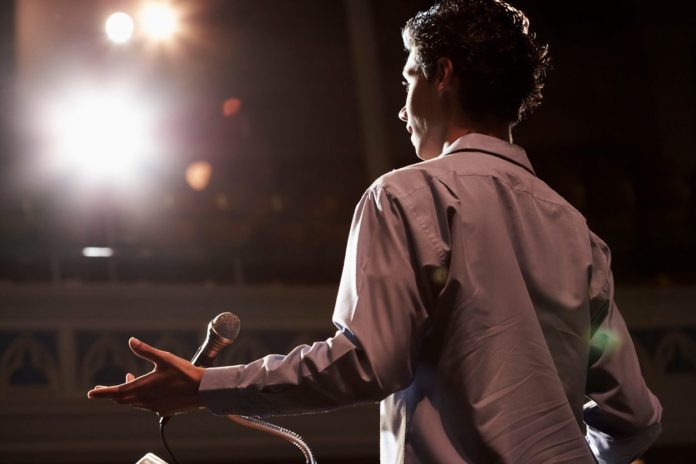What do the following have in common?
Tony Dungy (Author, two-time Super Bowl champion and NFL analyst); Scott Simon (Author, American journalist and the host of Weekend Edition Saturday on NPR); Greg Thornbury (Author, Vice President of Development at the New York Academy of Art in New York City and former Chancellor and President of The King’s College in New York City); David Taylor (Author, Assistant Professor of Theology and Culture at Fuller Theological Seminary); Karen Swallow Prior (Author and award-winning Professor of English at Liberty University); Eric Metaxas (Author, speaker, and radio host); Jason Barger (Author, speaker, leadership consultant); and Daniel Pink (Author of six books about work, business, and behavioral science, four of which are New York Times Bestsellers).
You say, that’s easy. They are all authors! True. And yes, I have read their published works. Yet there is something else that they have in common. Although I have never met them and not one of them could pick me out of a line-up, they have each participated with me in conversations through Twitter.
I sent them each messages regarding what I was reading in their books and they replied. I sought clarification and they helped me. I asked questions and they answered. I complimented them and they expressed gratitude.
Through their writings, they have each participated in helping me have a better understanding of the times in which I live.
These men and women have replied to me at commercial breaks during their broadcasts, while on a yacht on the Aegean Sea, while in the hospital recovering from an accident, and immediately following the death of their family member. I have interrupted their lives and they did not resent it. They graciously communicated with me.
I love being able to have a real-time conversation with people who author the books I read.
Here is the first point I want to make: No one needs to be a stranger to you. Seek to learn from other people constantly and be willing to share what you have been given in terms of experience, training and talents.
You are most likely in the insurance industry since you are reading this wonderful magazine. (I have never seen Broker World on the coffee table at the dentist office.) You have a purpose for your life that is somehow connected with helping the unprepared plan for the unexpected. Are you running full speed in the direction of your purpose?
Mary Oliver was an American poet who won the National Book Award and the Pulitzer Prize. She passed away on January 17, 2019. She was 83. To my knowledge, she was not on Twitter. If she would have had a Twitter account I would have asked her to tell me more about some of the lines in her poetry.
In her poem entitled, The Summer Day, she wrote these lines:
“Doesn’t everything die at last, and too soon?Tell me, what is it you plan to do with your one wild and precious life?”
Here is the question I would have asked Ms. Oliver. Since everyone dies, and it almost always seems “too soon,” what do you recommend that people do? In asking, I would of course be ready to discuss the vital importance of owning life insurance.
Let’s stop there for a moment. Since everyone you know is mortal, what if you started quoting these lines from The Summer Day and made a habit of simply asking the people in your life, “What have you done to protect those you love?”
H. Howard Wight addressed the assembled producers at the 1991 MDRT Meeting. Here are a few quotes from his presentation entitled Sales Sizzlers Breakfast:
- “Caring, responsible people buy life insurance. It is the best solution to certain problems that occur when they die.”
- “Assuming your client cares, the logic of life insurance in most situations is fairly clear.”
- “If your death will create an economic loss for your family, you probably need some life insurance.”
- “The amount of life insurance needed for income replacement is determined by asking, ‘How long are you intending on being dead?’”
I believe these straightforward statements will resonate with people today just as they did in 1991.
Mary Oliver battled lung cancer although hardly anyone knew about it. She thankfully lived several years after it was successfully treated. (She never quit smoking!) She rarely wrote about it in her poetry, but she did write four poems in that specific vein. Here is the first of the four, entitled, The Fourth Sign of the Zodiac (which is, of course, Cancer):
“Why should I have been surprised?/ Hunters walk the forest / without a sound. / The hunter, strapped to his rifle, / the fox on his feet of silk, / the serpent on his empire of muscles—/ all move in a stillness, / hungry, careful, intent. / Just as the cancer / entered the forest of my body, / without a sound.”
Let’s stop there for a moment. According to Medical News Today (https://www.medicalnewstoday.com/articles/282929.php) cancer is the second leading cause of death in the United States. In most cases, does it not enter “without a sound?” Is it not always “hungry, careful and intent?” So then, shouldn’t all the people in your life own some kind of long term care insurance, critical illness and/or chronic illness insurance, and, yes, life insurance?
In the second of her poems regarding her experience with cancer she asked, “Do you need a little darkness to get you going?” If Ms. Oliver was accessible to me on Twitter, I would have asked her, “Why do you suppose it takes darkness to get us to act logically and lovingly?”
Let’s stop there for a moment. In my career of nearly four decades in the life insurance industry, it never fails that the moment people are most apt to actually apply for life insurance, or long term care insurance, is when some “little darkness” has come into their lives personally or into that of a dear friend or family member. Now, if it weren’t for underwriting, that would be a fine time. But if mortality creeps into a person’s life, it is generally too late to apply.
Another line in a Mary Oliver poem is this: “The end of life has its own nature, also worth our attention.”
If you are in the life insurance business, the nature of the end of life should be absorbing your attention.
Do you suppose there are people in your life who have yet to take the logical step of applying for life insurance for the benefit of their loved ones? Will they come running to you when it is too late? What excuse will you be prepared to give for not having broached the subject yourself?
In a rare conversation and interview that the poet Mary Oliver had with Krista Tippett on a broadcast called On Being, she said, “There is something that has to do with all of us that is more than all of us are.” That something is the whole of humanity, the great big family that we all comprise. Each of us needs to ask ourselves, “What is my specific purpose in the whole picture? What is it I can do to benefit others?” Well, if you are in the business of life insurance, long term care insurance, critical and chronic illness insurance, ought not that purpose be to not keep these magnificent products a secret?
In other words, what is it you plan to do with your one wild and precious life?
Applications
- Ask yourself, “Am I representing life insurance simply, understandably and straightforwardly?”
- Make the client’s needs the subject. Not the product you represent.
- Find clients who care.
- Make the decision to buy life insurance a logical one.
- Replace as much future income as possible in order for the client’s family to remain in comfort.
One of my favorite lines from a Mary Oliver poem is this:
“I saw what love might have done / had we loved in time…”
I hear ticking. Suppose it’s a clock?




























